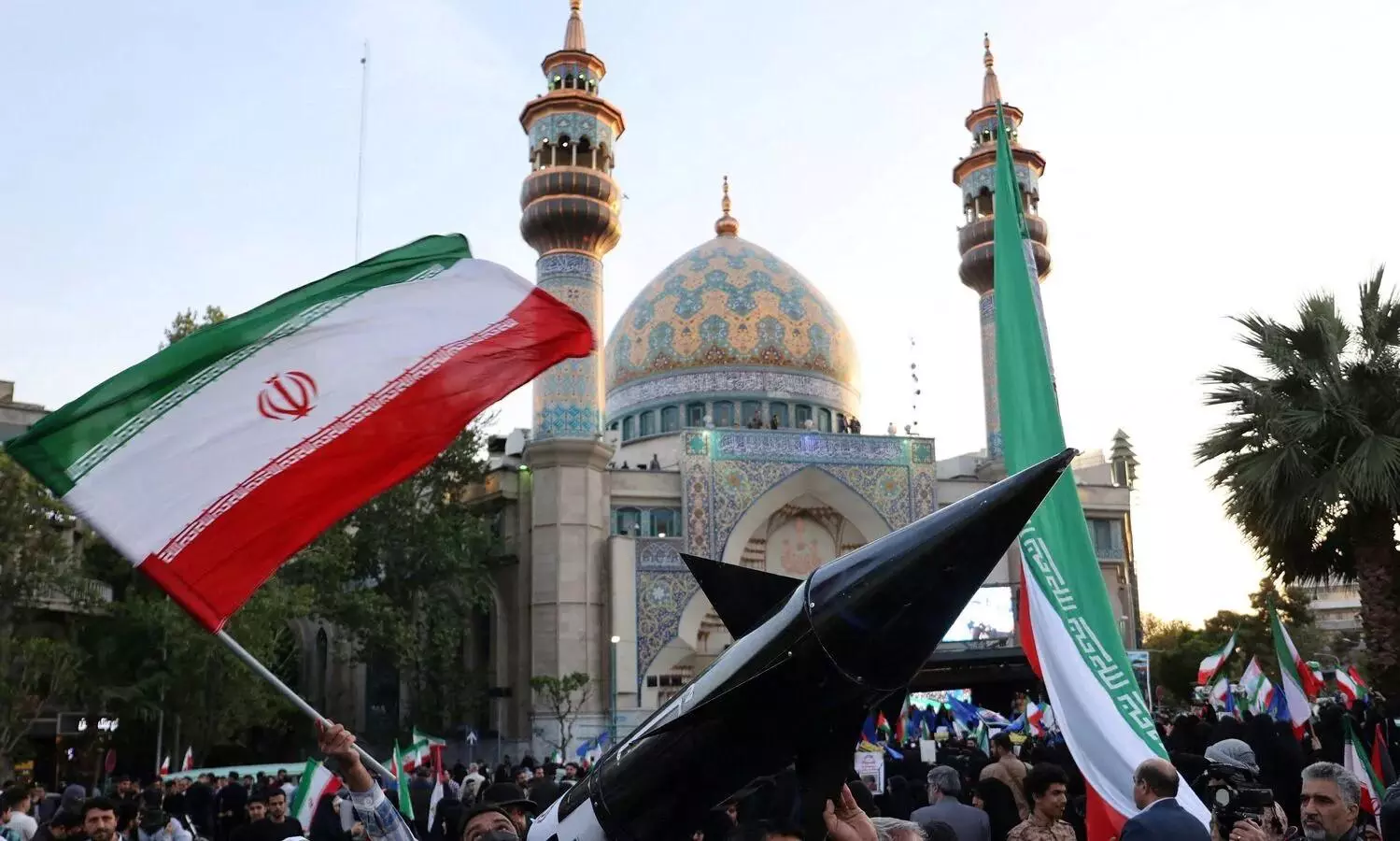
Iran signals intensified strike on Israel as fears of potential attack grow
text_fieldsIsrael is preparing for a potential Iranian assault following heightened warnings from Iran’s leadership, pledging retaliation over Israeli missile strikes in late October. The airstrikes, targeting Iran’s military facilities, were part of a cycle of escalation initiated when Iran launched ballistic missiles at Israel earlier in the month.
Iran initially downplayed the impact of Israel's October 26 strikes but has since shifted its tone, with top Iranian officials now promising a firm response.
Iran’s Supreme Leader, Ayatollah Ali Khamenei, initially offered a cautious response, noting the incident should neither be exaggerated nor minimized. However, recent statements by Iranian leaders have signalled a change in approach.
Senior officials, including Khamenei’s chief of staff and Iran’s top military figures, now emphasize that Iran’s retaliation will be severe and unprecedented. The head of Iran’s Islamic Revolutionary Guard Corps suggested the upcoming response would far exceed Israel’s expectations, framing Israel’s actions as a miscalculation of Iranian resolve.
Reports from Iranian and Arab sources suggest Tehran’s anticipated response will involve more complex tactics, advanced weaponry, and more powerful warheads than used previously. The timeline for this potential response appears to be influenced by the political situation in the United States, with some sources indicating it could occur between the U.S. midterm elections and the presidential inauguration in January.
Israeli intelligence sources speculate the attack may originate from Iraq, where Iran maintains influence through Shia militias equipped with Iranian ballistic and cruise missiles. Launching missiles from Iraq would reduce the time needed to reach Israel, compared to launches from Iran.
Israel’s recent strikes were, in part, a response to the death of Hezbollah leader Hassan Nasrallah in an airstrike on September 27, which further escalated tensions. Israeli leaders have indicated they will respond swiftly to any Iranian aggression, asserting that Iran’s air defence systems, weakened in the October 26 strikes, would struggle to counter a new Israeli retaliation.
Prime Minister Benjamin Netanyahu highlighted Israel’s expanded strategic reach within Iran, describing the Israeli military’s ability to target critical areas with increased flexibility.
The situation extends beyond Israel and Iran. The United States has reiterated its commitment to Israel’s defence, deploying an anti-ballistic missile system and stationing nearly 100 American personnel to operate it.
In addition, six U.S. B-52 bombers were recently positioned in the Middle East, likely in Qatar, following the deployment of F-16 fighter jets and refuelling tankers in October. The U.S. Department of Defense framed these actions as necessary to ensure the safety of American forces and citizens in the region and to support Israel while pursuing de-escalation.
Within Israel, concerns have grown about Iran’s capacity for retaliation, particularly given Iran’s complex regional network and long-range missile capabilities. Analysts suggest that Tehran, despite an initial desire to downplay Israel’s October attack, now perceives it as a significant incident, possibly the most severe strike on Iran since the Iran-Iraq war. The shift in Iranian rhetoric reflects a decision by Tehran’s leadership to demonstrate resilience, though it faces a challenging dilemma: a lack of response could be seen as a weakness both domestically and internationally, but a strong retaliation risks further escalation, potentially drawing Israel into additional attacks on sensitive Iranian assets.
Israeli analysts believe any retaliatory strikes from Iran could prompt an even broader Israeli campaign against Iran’s military and symbolic targets, possibly extending to critical infrastructure like oil facilities and, crucially, Iran’s nuclear installations. This prospect aligns with Netanyahu’s recent remarks, where he underscored that preventing Iran from developing nuclear weapons remains Israel’s primary security objective.
The prospect of an Iranian counterattack also has the Israeli military preparing for a potential shift in hostilities to Syria. Recently, Israel launched strikes near Damascus, targeting assets linked to Hezbollah intelligence operations.
According to Israel, Hezbollah operates an independent intelligence network in Syria, coordinating and gathering information on Israeli activities. In response, Syria accused Israel of targeting civilian infrastructure south of Damascus, although damage details remain unconfirmed.























